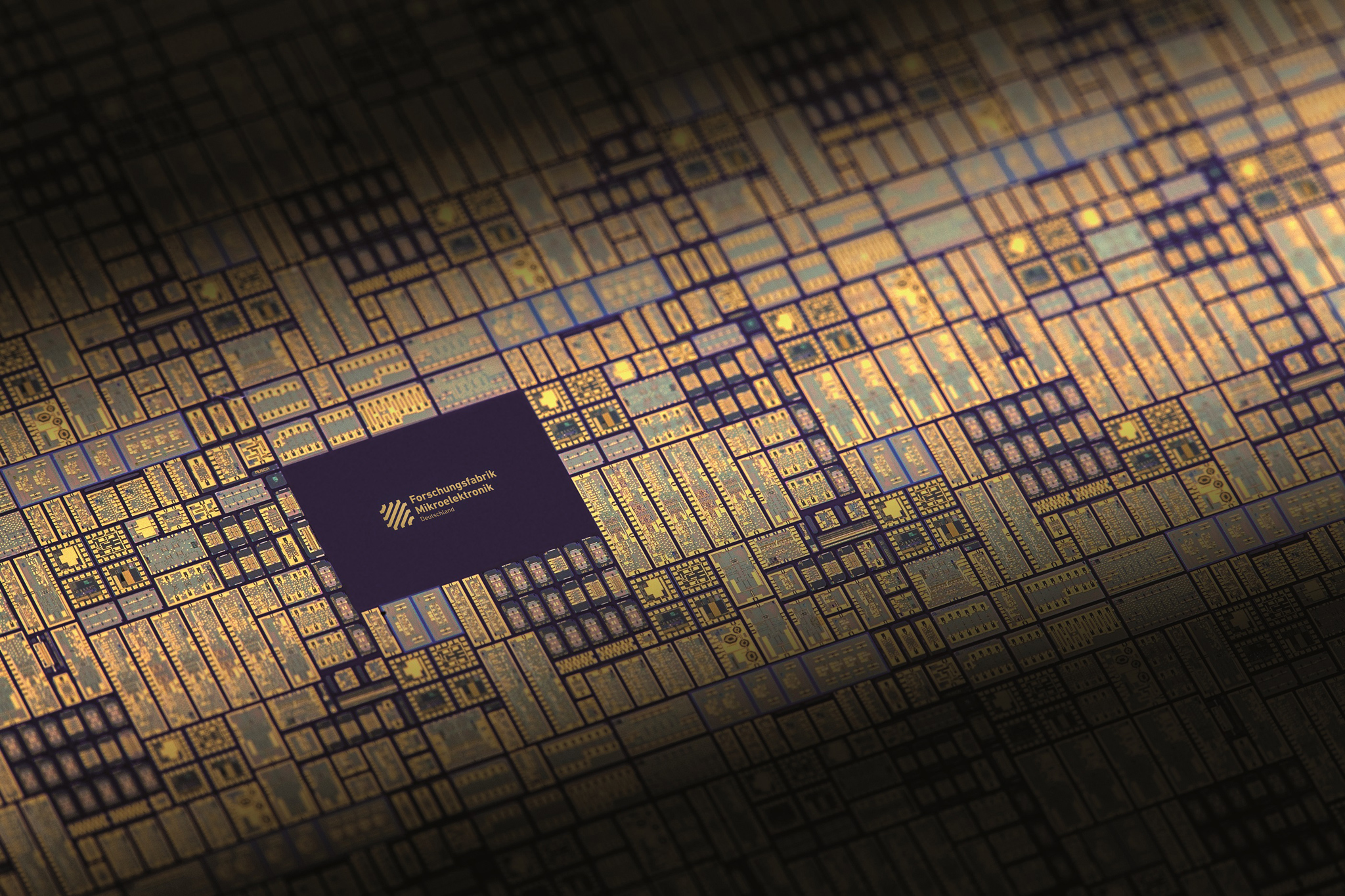Research Fab Microelectronics Germany FMD
In 2022, the FMD has further grown. Currently, more than 4,500 employees contribute their expertise to the research and development of micro and nanosystems. The FMD is thus one of the largest R&D associations of its kind in the world.

Major projects launched for sustainable electronics and new computing technologies
Building on the competences, structures and services created within the framework of the FMD, two new major projects – the "Green ICT @ FMD" and the "FMD-QNC" – were launched in 2022.
As part of the Green ICT @ FMD project, the Fraunhofer and Leibniz Institutes cooperating in the Research Fab Microelectronics Germany, together with the Fraunhofer ISI, are setting up a cross-location competence center for resource-conscious information and communication technology (ICT). Within this framework, Green ICT-specific issues can be addressed in a bundled manner and cross-technology ICT solutions up to a high level of technical maturity can be provided to partners in industry and research – all from a single source. This project, launched in August 2022, is funded by the German Federal Ministry of Education and Research (BMBF) under the Green ICT Initiative, which in turn is part of the Federal Government's Climate Action Program 2030.
Furthermore, to bring together and expand the existing microelectronic research and the developments related to quantum and neuromorphic computing carried out in Germany, the FMD together with four further Fraunhofer institutes, the Research Center Jülich and AMO GmbH launched a joint project in December 2022: The Research Fab Microelectronics Germany - Module Quantum and Neuromorphic Computing (FMD-QNC). FMD-QNC is a nationwide collaboration aimed at supporting researchers and companies in developing customized microelectronics and scalable manufacturing and integration processes for new computing technologies. The equipment and structural setup required for this is being funded by the BMBF.
Setting up a Microelectronics Academy
As part of the Green ICT @ FMD and the FMD-QNC projects, a Germany-wide microelectronics academy will be established over the next three years. In December 2022, the kick-off of the conceptualization phase took place and with it, the establishing of the Academy and the enabling of modern training opportunities in the field of micro and nanoelectronics. Regarding its thematic foundation, the Academy is structured in three thematic pillars. The first two pillars, Resource-conscious ICT and Practice-oriented semiconductor engineering and technology (both derived from the Green ICT @ FMD and FMD- QNC projects), are further complemented by the third pillar focusing on design of microelectronic circuits and systems. In the process of setting up the Microelectronics Academy, the FMD is not only assuming the organizational management, but also taking responsibility for the three thematic pillars. The overarching goal is to improve the quality of the training for skilled workers in the field of microelectronics as well as, in the long term, to actively impact and drive forward areas such as climate protection and sustainability, new computing technologies and trustworthiness in the semiconductor and chip sector.

Increasing the innovative strength of microelectronics in Europe
To ensure that Germany and Europe remain key players in the global value chain, the FMD undertook crucial preparatory work for the technological foundation of the "European Chips Act" in 2022. For instance, the FMD-QNC is being complemented at the European level by the PREVAIL project (Partnership for Realization and Validation of AI hardware Leadership). This project brings together four European research organizations, CEA-Leti, Fraunhofer, imec and VTT, to create a networked 300-mm technology platform for manufacturing chip prototypes used in advanced artificial intelligence and neuromorphic computing applications. The national part of PREVAIL constituted by four Fraunhofer institutes EMFT, IIS, IPMS and IZM, which as part of FMD are broadening their 300-mm fabrication, design and test facilities to complement the 300-mm technology of their European research partners.

